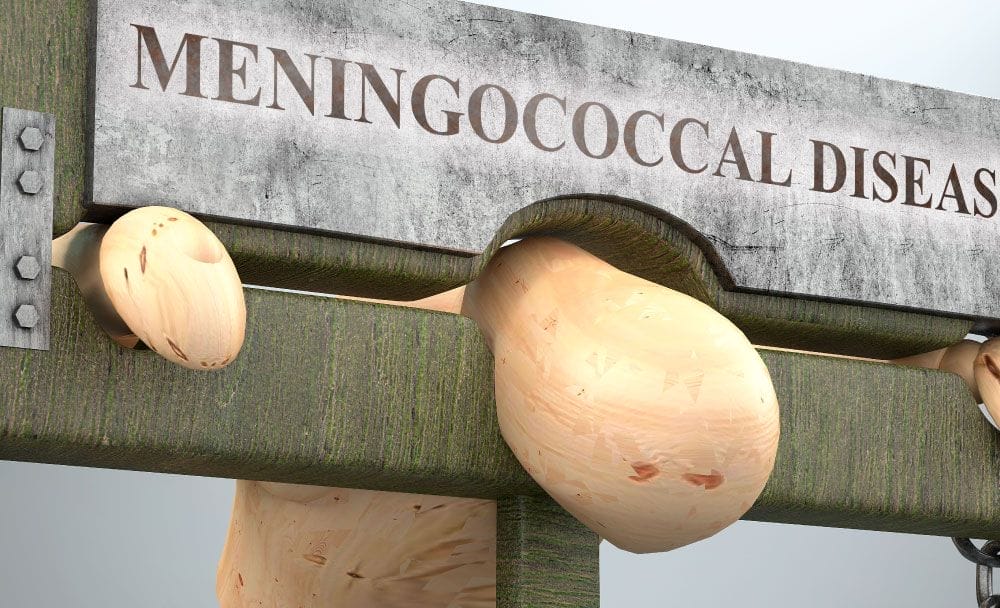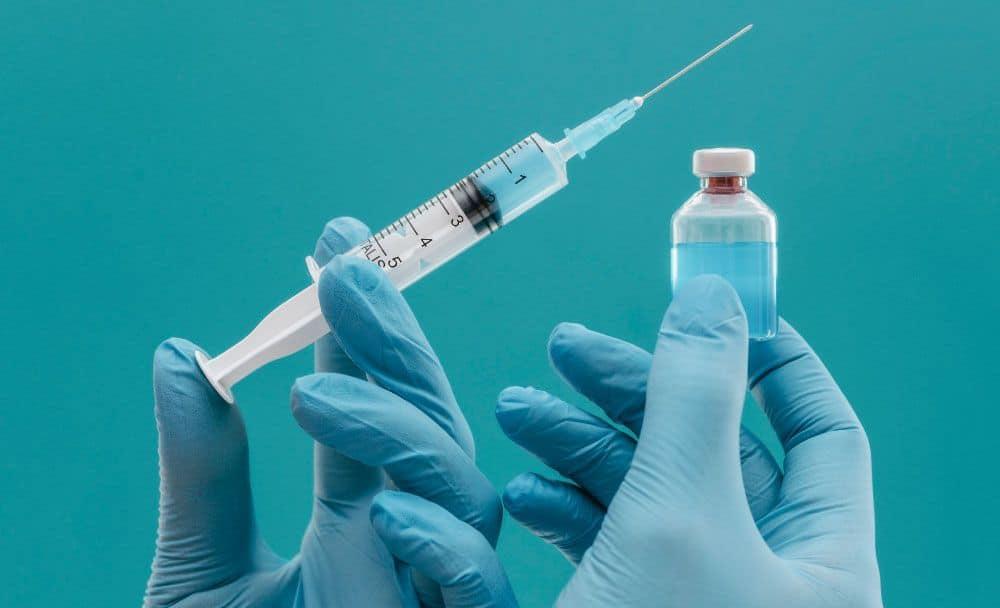Meningococcal disease, epidemic cerebrospinal fever, or spotted fever is a potentially life-threatening and fatal infection caused by the bacterium Neisseria meningitidis. [1] Once it invades the bloodstream, it can potentially cause devastating diseases affecting people of any age. [2] It can start as a small infection but quickly progress within a few hours into a fulminant illness affecting multiple organ systems.
Meningococcal disease can occur sporadically or in outbreaks, primarily affecting children and young adults. [2] It can result in Meningococcal meningitis, a kind of dangerous inflammation of membranes around the brain and spinal cord. It can range from transient fever to fulminant bacteremia and even septic shock. [3] Understanding the causes, triggers, symptoms, and available treatment options for meningococcal disease is crucial for prompt diagnosis and effective management of this serious condition.
What are the causes of Meningococcal Disease?
Bacterium Neisseria meningitides is the culprit behind Meningococcal disease. There are multiple serogroups of N. meningitidis, but the most common ones associated with human diseases are serogroups A, B, C, W, X, and Y. [3] The bacteria are typically transmitted through respiratory droplets from an infected person. Close and prolonged contact, such as living in crowded conditions, can increase the risk of transmission. [5]
What are the symptoms of Meningococcal Disease?
The symptoms of meningococcal disease can develop rapidly and progress rapidly. Common symptoms include:
- High fever
- Severe headache
- Stiff neck
- Nausea and vomiting
- Sensitivity to light (photophobia)
- Delirium or confusion
- Dizziness
- Irritability
- Altered mental status, neurologic deficits, and seizures
It is important to note that not all individuals with meningococcal disease will present with all symptoms. Infants and young children may exhibit different symptoms, including fever, irritability, poor feeding, and a bulging fontanelle, a soft spot on the head. [4]
How can Meningococcal Disease be diagnosed?
Diagnosing meningococcal disease involves a combination of clinical evaluation, medical history, and laboratory tests. To confirm the diagnosis, certain tests need to be conducted:
- Lumbar puncture (spinal tap) is often performed to collect cerebrospinal fluid for analysis.
- Blood tests, including standard culture, gram staining, and polymerase chain reaction (PCR), may be used to detect the presence of N. meningitidis in the bloodstream or other body fluids.
- Imaging studies such as CT scans may be required in case of focal neurologic deficits, altered mental status, immunodeficiency, and new-onset seizures, among others. [3]
How can Meningococcal Disease be treated?
Meningococcal meningitis is a medical emergency that requires immediate treatment. Treatment options include:
Antibiotics:
Intravenous antibiotics, such as ceftriaxone or cefotaxime, are the mainstay of treatment. These medications target the bacteria and help eliminate meningococcal infection.
Airway management:
Supportive measures may be necessary to manage symptoms and complications. This can include supple-mental respiratory support or airway protection, particularly in the case of patients with highly compromised mental status. [2]
Resuscitation:
Patients with meningococcal disease may require early intubation resulting in vascular collapse and septic shock. Thus resuscitation should be considered for stabilizing blood pressure and providing sufficient tissue perfusion.
Steroids:
Patients are usually given an empiric dose of steroids called dexamethasone. [3]
How can Meningococcal Disease be prevented?
Prevention is crucial in reducing the burden of meningococcal disease. Key prevention strategies include:
Vaccination:
Vaccines are available for several serogroups of N. meningitidis, including serogroups ACYW and serogroup B. Vaccination is recommended for adolescents, and individuals at increased risk of exposure or complications such as travelers to epidemic areas of meningococcal disease, military recruits, and lab workers handling N. meningitides, among others.
Antibiotic Prophylaxis:
Close contact with individuals with meningococcal diseases, such as household members or healthcare providers, may be prescribed antibiotic prophylaxis to prevent transmission. [3]
Respiratory Hygiene:
Practicing good and safe respiratory hygiene, such as cupping hands around the mouth and nose while sneezing or coughing, can reduce the spread of respiratory droplets containing the bacteria. [2]
FAQs
- How can you prevent meningococcal disease through lifestyle?
Maintaining a healthy lifestyle and a healthy immune system through a balanced diet, regular exercise, adequate sleep, and proper stress management can help lower the risk of meningococcal disease infection.
- What are the best meningococcal meningitis treatment options in Ayurveda?
The most effective treatment of meningococcal meningitis in Ayurveda is Baheda. This herb has anti-inflammatory properties, which reduce the inflammation related to meningitis, making it highly effective. It plays an important role in treating pain, swelling, and inflammation, pacifies the aggravated Vata dosha in the body, and thus maintains the balance of Doshas.
- What are the initial signs of meningococcal that one should be looking out for?
Fever, fatigue, vomiting, cold feet, and hands, muscle pain, aches in joints, rapid breathing, and diarrhea are among the first signs of meningococcal that one should be looking out for.
Conclusion
Meningococcal disease is a serious, life-threatening and life-damaging infection that can have severe consequences if not promptly diagnosed and treated. Recognizing the symptoms of meningococcal disease, seeking immediate medical attention, and initiating appropriate antibiotic treatment are essential for favorable outcomes. Vaccination, good respiratory hygiene, and antibiotic prophylaxis for guarding the close contacts can help prevent the spread of the disease. By understanding the causes, symptoms, and meningococcal meningitis treatment options for meningococcal disease, individuals and healthcare professionals can work together to prevent and manage this potentially life-threatening condition.
Disclaimer: This article is written from a health and wellness perspective and is not medical advice. Kindly seek the help of a certified medical practitioner before initiating any treatment.



















